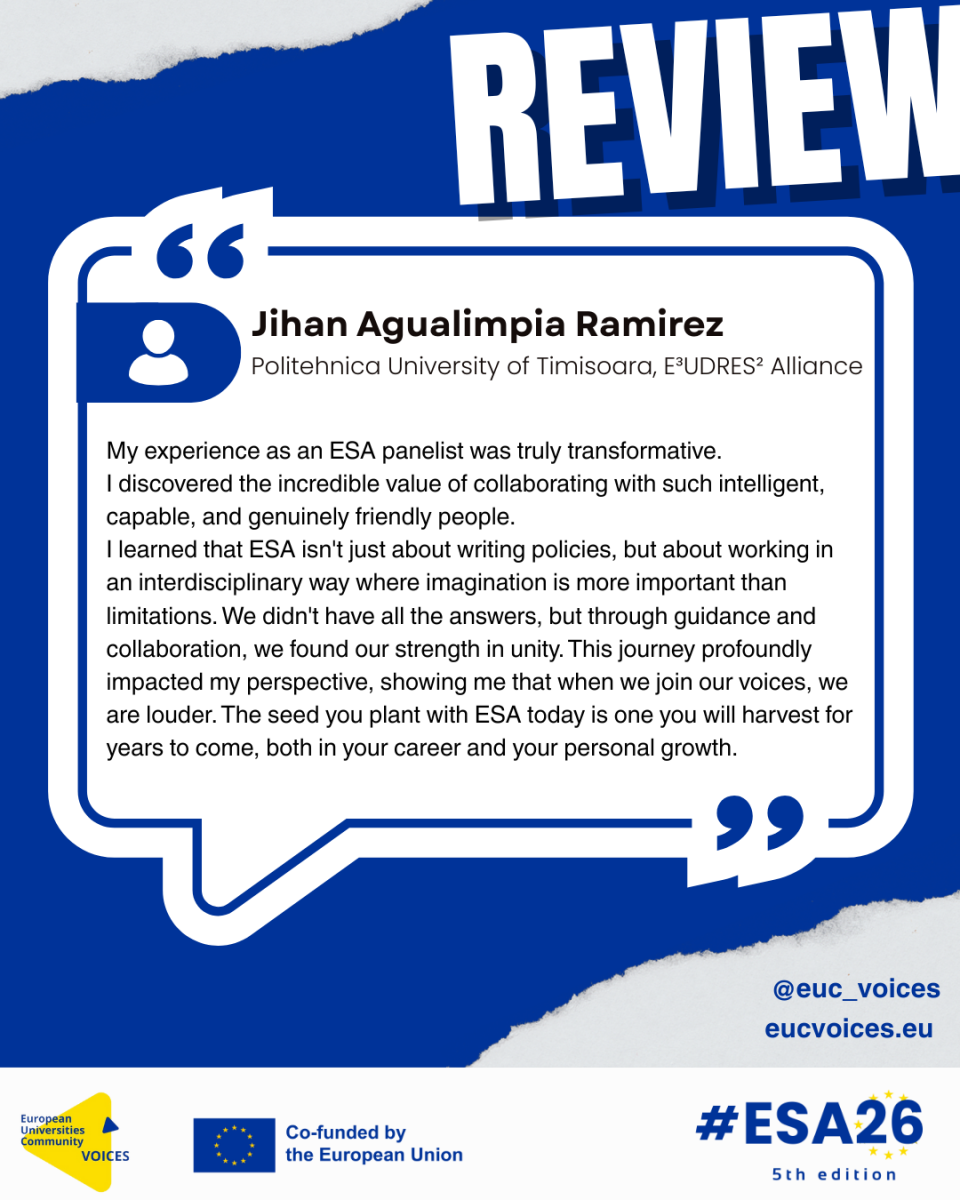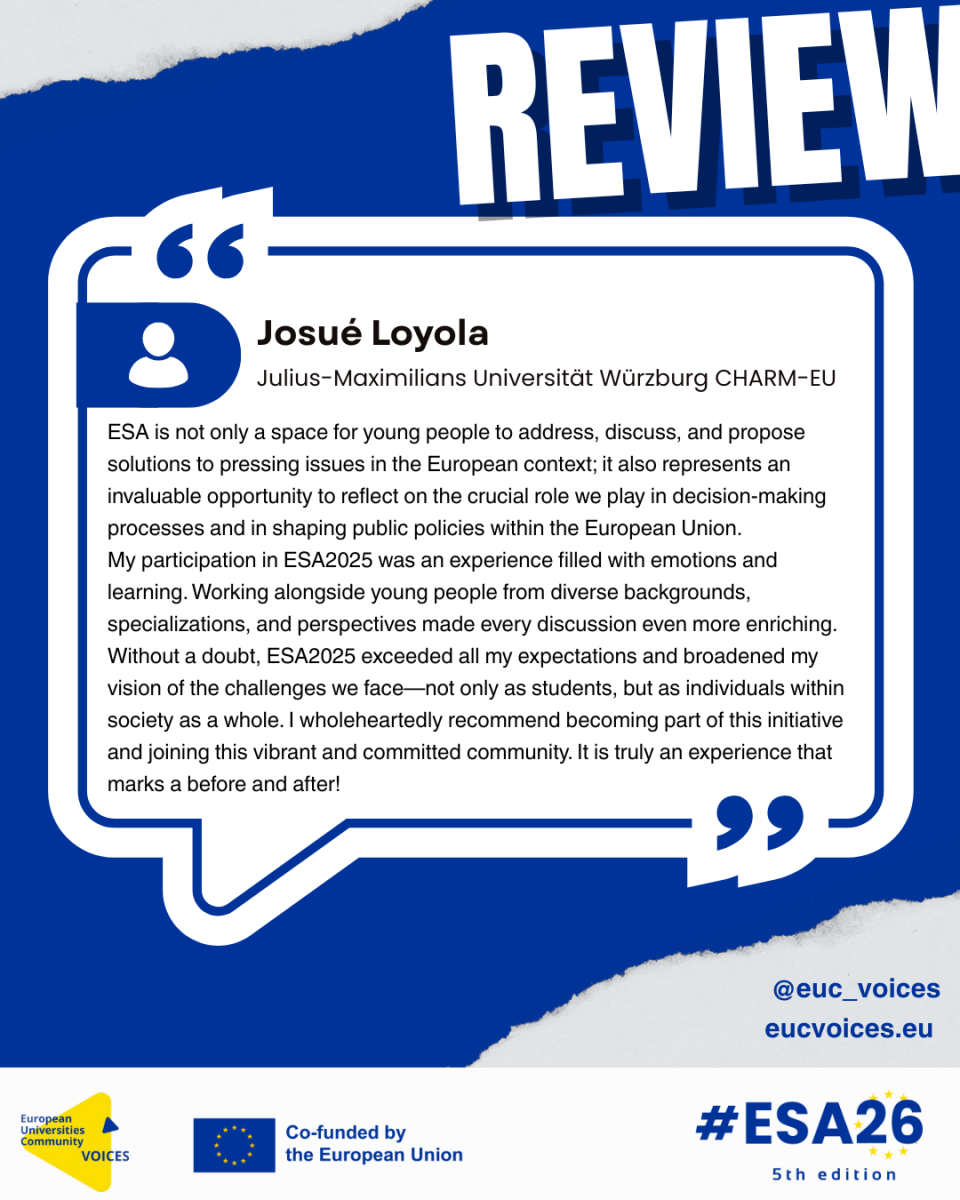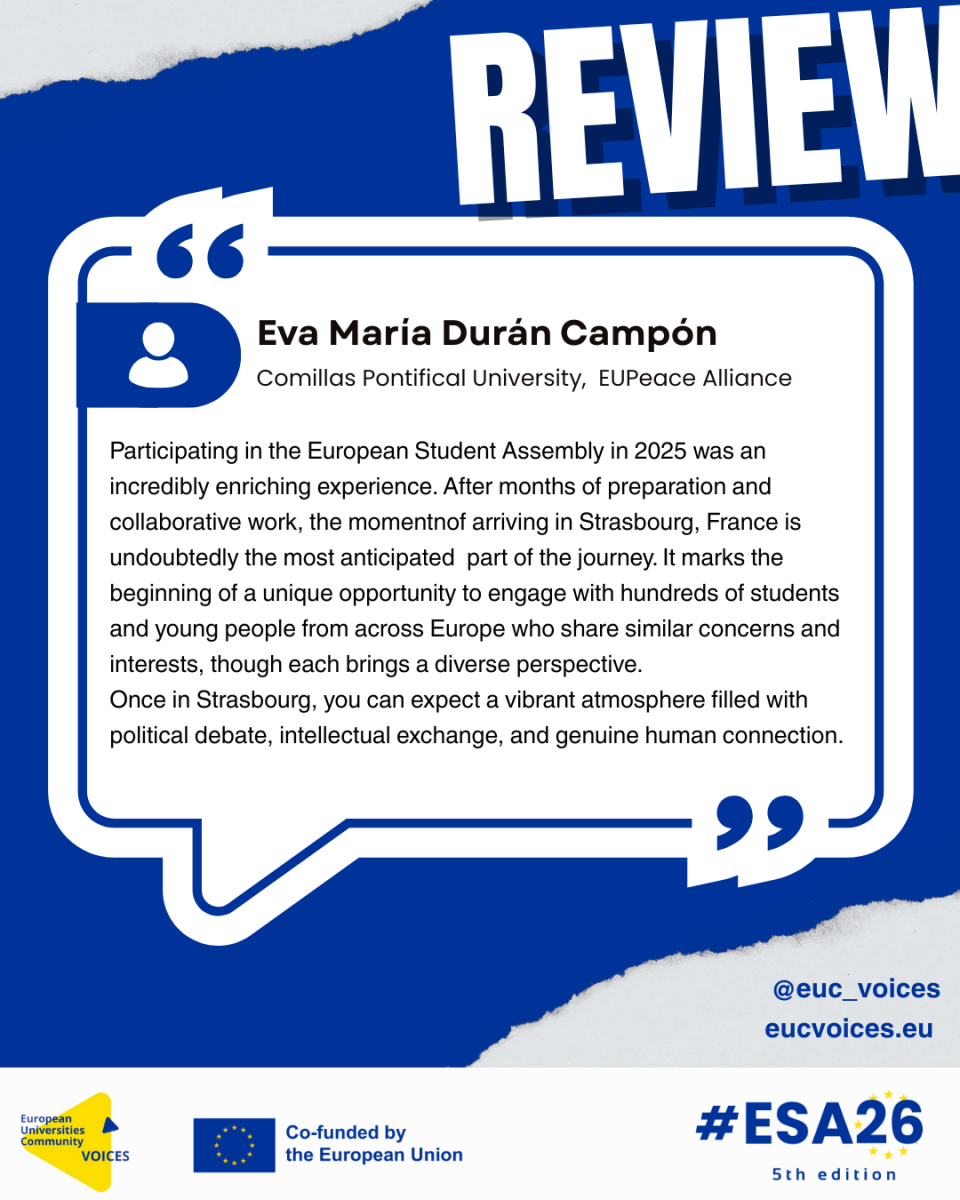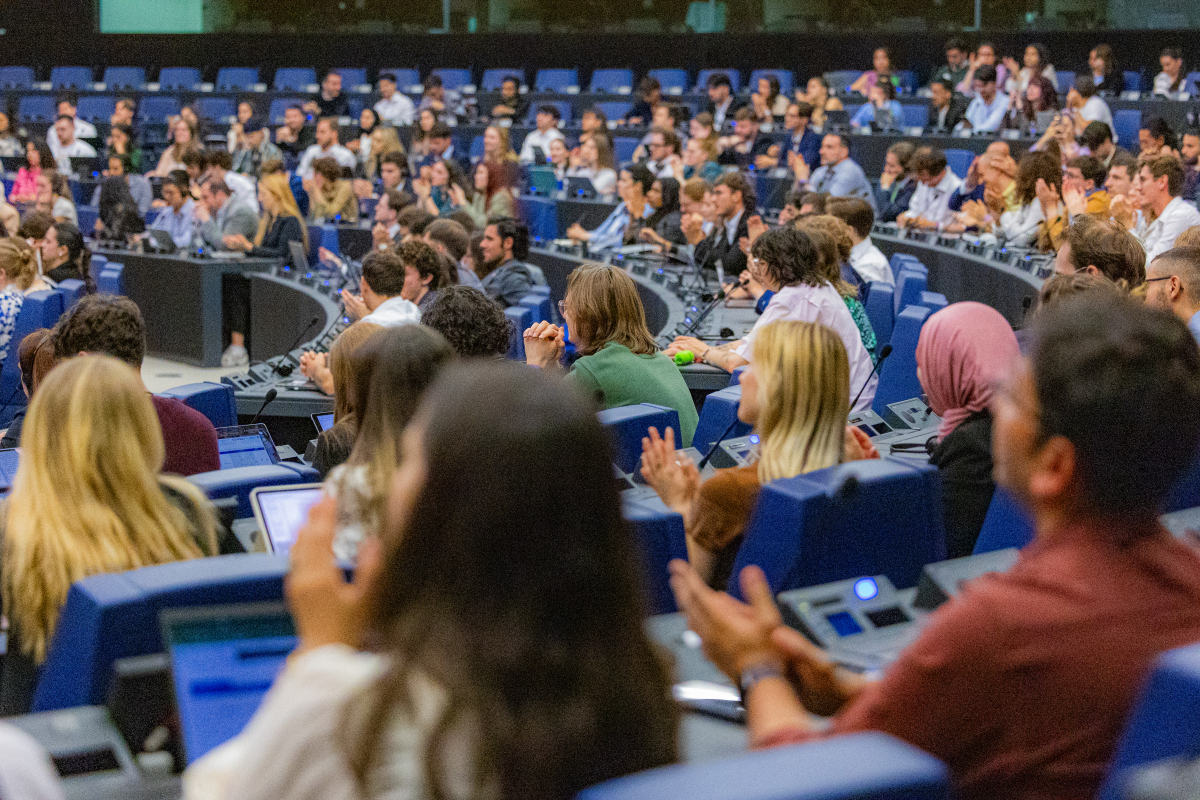
📣 Update for ESA 2026 Applicants 📣
Emails to both selected and non-selected applicants for the European Student Assembly (ESA) 2026 will be sent within this week. Applicants are advised to check their inboxes — including the spam folder. Selected candidates will be required to confirm their participation by 17 December 2025.
For any questions, please contact esa@eucvoices.eu
Download here ESA2026 application FAQ
The European Student Assembly (ESA) is the flagship initiative of the EUC Voices Erasmus+ project, designed to bring together approximately 250 students from across Europe each year. This dynamic event provides a unique platform for selected European students to delve into essential issues facing the European Union, sparking impactful discussions and fostering intercultural exchange.
Students interested in participating have the opportunity to apply either as participants or coordinators, contributing to one of the Assembly’s discussion panels. The selection process is conducted collaboratively by EUC Voices partners and the European University Alliances, ensuring a transparent and inclusive approach. Selection criteria prioritize students with a passion for European politics, culture, and society, along with a motivation to engage in meaningful dialogue, share their perspectives, and positively impact their communities.
Panel coordinators, who play a central role in facilitating these discussions, are chosen not only for their interest and expertise but also for their experience as leaders in similar initiatives. These coordinators guide conversations that challenge perspectives and inspire new insights into Europe’s most pressing challenges.
➡️ Click here to find out if your university is part of the 65 Alliances
➡️ Click here to download the handbook of ESA 2026 to learn all the information about ESA
Here are the panels for ESA 2026:
-
Panel 1—Strengthening democracy, engaging citizens: How can the EU bridge the gap between its institutions and its citizens to build trust and foster civic participation?
-
Panel 2—Scaling the circular economy: How can the EU overcome uneven progress and encourage change across sectors and societies?
-
Panel 3—Aligning budget with impact: How can the Union’s funding rebalance and adapt to the social changes?
-
Panel 4—Europe moving together: How can the EU develop an inclusive public transport system?
-
Panel 5—Unlocking digital potential: How can the EU empower inclusive digital literacy and cybersecurity and build resilience?
-
Panel 6—Educating without borders: How can the EU support universities in fostering interdisciplinarity?
-
Panel 7—Enabling generational solidarity: How can the EU address demographic change and promote meaningful participation for older generations in society?
-
Panel 8—Europe’s strategic autonomy: How can the EU reconcile strategic autonomy with its core values in the field of trade agreements?
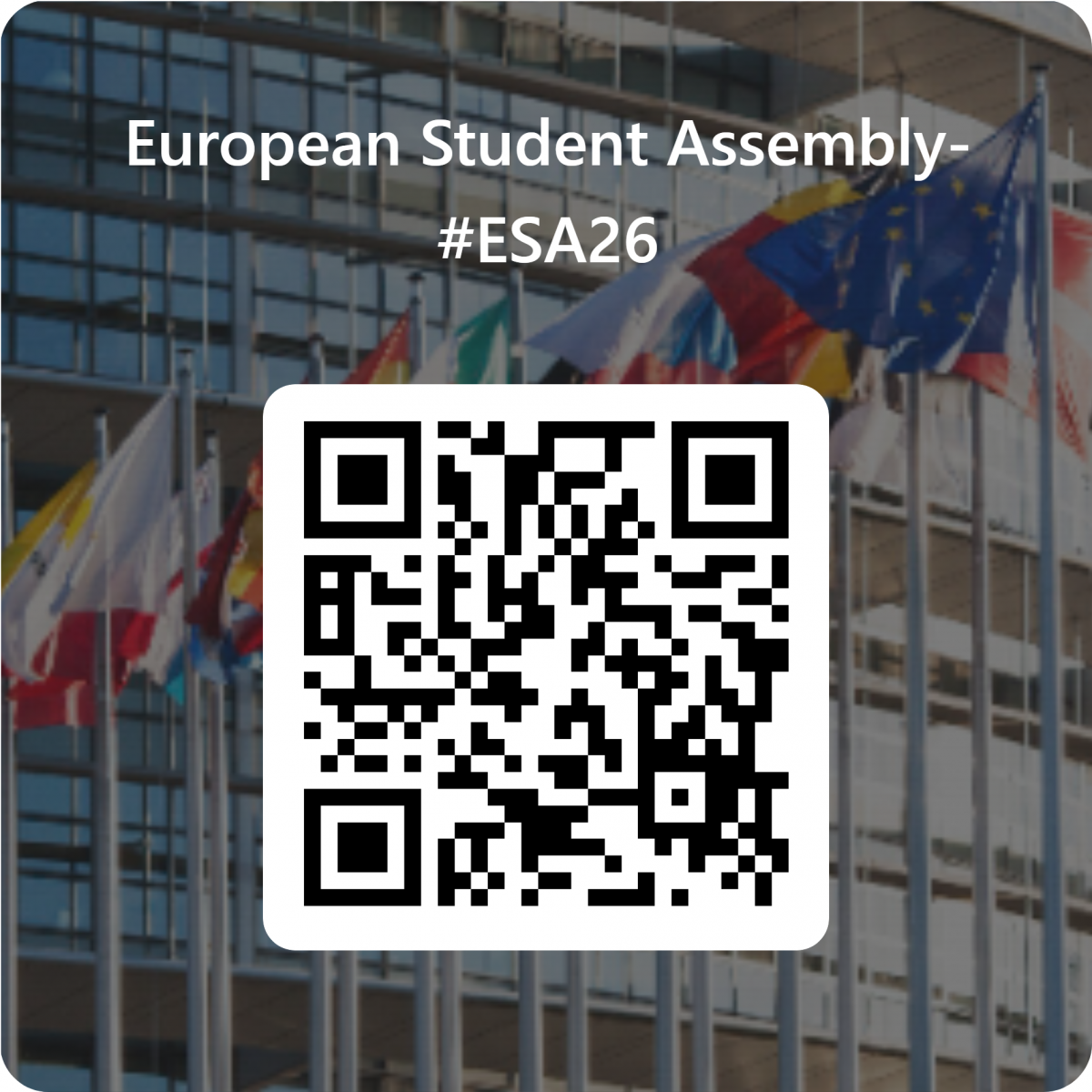
Read the reviews from participants from ESA2025
Watch the video from the previous edition



